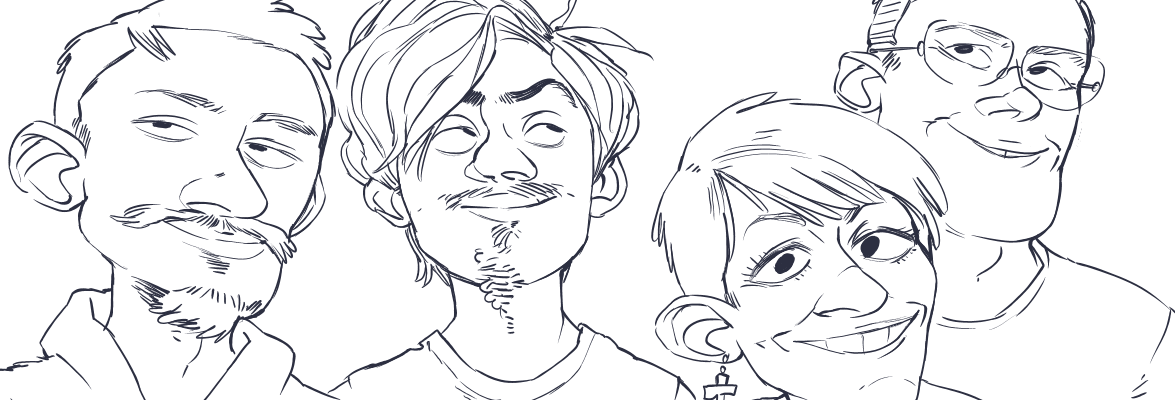Yo.
MrBtongue has a new video. Joy and rapture!
It’s about The Witcher, an acclaimed series of Polish novels-turned-videogames. I’ve mentioned them before. I’m a huge fan of MrBtongue and his analytical videos, and I’m also a hesitant fan of The Witcher games, so I expect good things from this video.
Ah. Yes, all right, I thought he’d take this tack. In case you don’t want to watch the eight minute video, let me summarize.
If The Witcher prides itself on anything — and I’m sure it prides itself on a few things — it is nonconformity. Or at the least, originality. In a sea of High Fantasy role-playing games that deal with traditional issues of good VS evil, heroes fighting monsters and saving the world, The Witcher goes for a more grounded, morally gray story. The game — and when I say “game,” I’m talking about The Witcher franchise on the whole, games, books and TV series alike — takes the usual Tolkien fantasy tropes and subverts, averts or twists them to create something harsher and fresher.
I agree with MrBtongue here, to an extent. Then he brings up The Monomyth, The Hero’s Journey, and points out that while most role-playing games follow it to a T — Mass Effect, Dragon Age, in fact just about anything made by Bioware — The Witcher goes for a more personal story, like the kind found in many non-fantasy works.
While I understand this point, I would argue The Witcher still follows The Monomyth, merely in a more subdued manner. After all, The Monomyth is really just an elaborate Story Enneagram that’s been fine-tuned to suit a fantasy epic — and The Witcher has an Enneagram just like any other plot-driven game. At least, I assume it does, and all evidence suggests it does, but I won’t know for sure until I play through it again.
Here’s the other thing. MrBtongue is clearly a huge Witcher fan. I’m willing to guess he’s a supporter of both the game’s outline (its focus on subverting traditional Tolkienisms) and the game’s content (which I’ll get to in just a minute).
As far as I can tell, almost everyone agrees with MrBtongue on the former — like I said earlier, in a sea of High Fantasy role-playing games The Witcher is a breath of fresh air. Personally, I would prefer if this “sea” were a little larger — I can never have enough role-playing games, derivative or not.
The latter issue — the question of the game’s content — is also universally praised, but there are more dissenters. My quasi-mentor Shamus Young, for example. Shamus hates The Witcher. He admits that he shouldn’t, considering it has everything he wants in a role-playing game: it offers genius worldbuilding, gorgeous art design and best of all, nonlinear storytelling. None of the decisions in the game fall on a clear moral spectrum — or rather, the developers never judge you for the decisions you make. You don’t get Paragon or Renegade points, and all/most of the choices have consequences that are both good and bad.
 Shamus eats this stuff up and laments it isn’t offered more often. (I’m sure I’ve mentioned before that I feel the same.)
Shamus eats this stuff up and laments it isn’t offered more often. (I’m sure I’ve mentioned before that I feel the same.)
And yet, he hates The Witcher anyway. Keep in mind I’m summarizing again — read his post if you want the full perspective. He doesn’t like the world or the characters, or even the player character, Geralt. He particularly despises the moral choices, since they’re less “do a good thing or do a bad thing” and more “do a bad thing or do a different bad thing.” (I’m totally paraphrasing, sorry, Shamus.)
He also brings up the constant objectification of women in the game. MrBtongue argued — or I should say implied — that this isn’t objectification, but a natural extension of telling a more mature story a la Game of Thrones. When Shamus says he finds the game too bleak I know exactly what he means — it’s called Darkness-Induced Audience Apathy, and it means that the story is simply too dreary, or the characters too unlikable, to sustain the consumer’s interest.
I fall somewhere in between Shamus and MrBtongue. Obviously I must have liked the game (The Witcher 2) better than Shamus, since I managed to play through the whole thing whereas he could only stomach a few hours before he shut the game off. Perhaps I have a higher tolerance for aggravation, or maybe I’m more desperate for role-playing than he is.
When I first played The Witcher 2, I felt a lot like Shamus did for roughly the first two-thirds of the game. I didn’t like the characters or the world, but I put up with both because I was enjoying the game-stuff: the combat, the inventory management, the exploration aspects, the achievements. It took a long, long time for me to get invested, and in some ways the game seemed to be working against me. Whenever I started to like a character, for example, he or she would say or do something unpleasant, and I’d lose interest again.
All the same, I’m looking forward to my next playthrough. I’ve immersed myself in The Witcher universe since finishing the game — I read one of the original books, I watched the campy TV show, and I’ve seen at least two Let’s Plays of the first game. It’s unlikely I’ll replay it very soon — Christmas is upon us, and it brings new games and new experiences with it. Plus, I should probably wrap up my Mass Effect Enneagram before I get started on The Witcher’s.
I guess that’s all I’ve got to say right now. This post was basically just a summation of two opinions. Do I do that a lot or what? I needed to write something, though.
Thanks for reading and Merry Christmas.

Permalink
Did someone say, “objectification of women in gaming”?
I have not played Witcher 2, but I recognized the “Kratos gets it on” video clip from God of War that MrBtongue used. Both games have a male hero only. A game that allows the player to choose male or female is a game with less gratuitous boob shots. Also, as games progress and more gals game, the boys’ club atmosphere gets less obvious. Compare ME1, with Shaira the sensuous blue-babe prostitute, to ME2 or 3. I would imagine an exception is GTA V. Everything in that’s gratuitous, isn’t it? But you play as a dude, too.
I suspect I would fall onto Shamus’ side of the aisle about the Witcher. However, I chose not to play it because it just looked too dark. I missed out on the “mature” aspects. Also, I like to have the option to play as a female. I don’t always choose to do so, but the option may indicate more open-mindedness in other aspects of the game play. Interesting.
Permalink
Never thought of it that way. Great point.
I glazed over the “objectification in The Witcher” bit because I’d rather not get into it in this particular post. I’ll have some things to say about it in the future, probably.
I also prefer RPGs with more malleable player character options, but I understand why CD Projekt chose to limit their game solely to Geralt. As a predefined character, it wouldn’t have made sense to offer a female version of him. I think they limited themselves to Geralt because they were worried about alienating longtime Witcher fans — better to feature a familiar character than to risk the fanbase.
Maybe after The Witcher 3 they’ll branch out and offer more player character options. In fact, I think they mentioned as much in a recent interview. Anyway, thanks for the comment and thoughts.